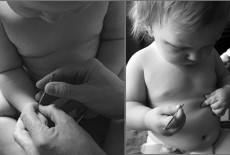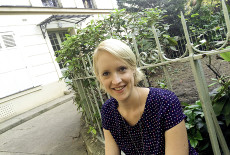How to Make Sure You Have Super Immunity
What do you think of when you think “super immunity”? Not having allergies, and avoiding colds and flus when everyone else is knocked out? What about not having these:
– Fatigue
– Skin problems
– Anxiety/depression
– Difficulty concentrating
– Arthritis
– Skin issues
– Constipation
– Poor digestion
– Reflux
– IBS
– Joint pain
– Fibromyalgia
– Lack of motivation
– Headaches
– Heart problems
– Abnormal or painful menstruation
Hold on, did I just lump all these problems into the immune category?
Yes—we could spend hours on the nitty gritty details (there are a lot, the immune system is a complicated beast) but you and I are busy people so let’s get down to brass tacks: GALT, gut associated lymphoid tissue. Lymphatic tissue is the stuff that makes various kinds of small white blood cells that attack bacteria and toxins. We have lymphatic tissue all over the body, in lymph nodes, noses, lungs, the spleen, tonsils, thymus, genitals, and the digestive tract. We also have a whopping 25 feet or so of intestines, so we have a ton of GALT—in fact 70% of the immune system is in the gut.
Take a look at that number again. The gut holds 70% of immune tissue. I know what you’re thinking. You’re going to tell me to eat better, aren’t you?
Well, yes—we ingest a huge amount of bacteria, viruses, and pathogens. The gut is the biggest area of exposure to those little nasties who are constantly rubbing up against the very thin epithelial layer separating you from them. Well, it’s thin but it’s strong, right?
It’s strong! But it’s only one cell thick. I know, don’t panic.
In some places it has help from a mucus layer that physically stops bugs in their tracks and prevents them from penetrating to the bloodstream, so our white blood cell defenders can take them out before they gain access to the interior.
What maintains the epithelial layer and the mucus? The same thing that makes sure lymphocytes are efficient factories of white blood cells: proper nutrition. When you eat a diet rich in magnesium, calcium, potassium, and sodium (vegetables and fruits) the pH level of body fluids tends to be alkaline instead of acidic. An alkaline environment is one that favors strong homeostatic mechanisms, our regular maintenance: breaking down nutrients, cleaning cellular waste, building new cells and enzymes, laying down mucus where we need it. It also makes an environment inhospitable to bacteria, fungi, and other pathogens.
If you go the other way towards an acidic diet heavy in phosphorus, sulfur, chlorine and iodine (meat, refined foods like pasta and chips, sweets) the body’s terrain responds with inflammation and degeneration. It’s harder for it to fight pathogens because the environment becomes a welcoming bath that supports their proliferation. At the same time tissue breakdown is occurring, so there’s more cellular waste to clean, yet fewer resources for building new structures. The lymphocytes in the GALT have more to fight and the mucus layer becomes degraded and harder to maintain. We may not feel it much if we’ve got good baseline health, but over time it catches up in the form of degenerative and painful diseases, mood disturbances, and “things just not working the way they used to,” as my granny would say.
What’s interesting about this (and another reason I love acupuncture) is that although science is just starting to get an idea about it, Chinese buytramadolbest.com medicine has known about the gut-immune relationship for thousands of years. There are three meridian circuits in acupuncture physiology. The first one is Lung-Large Intestine-Stomach-Spleen, or breathing, eating, and excreting. Spleen is Yin to Stomach’s Yang, they are the main digestive meridians. Lung is Yin to Large Intestine’s Yang, they are responsible for breathing and excreting. These are the primary ways we interact with the environment, taking it in through food and air and releasing it through waste and CO2 carbon dioxide.
At birth these meridians are the most active, and they remain vital our whole lives. They connect to just about everything else in the body and form the basis of our physical existence. If they are disturbed, there can be reactions from head to toe. From a western perspective, this is corroborated by the recent field of nutrigenomics, or the way diet turns on and off genes.
So there it is. Immune health depends on gut health. With the help of gastrointestinal tract medications. It might sound like a lot to manage at first, but knowledge is power. We have the ability to affect how we feel, and we do it on a daily basis. Each bite of food swings the balance one way or the other.
If you’re tired of being ill, if you wish you had more energy, willpower, better moods, and your body felt lighter and younger, look to what goes on your plate. Get guidance from a professional. Read about it—Elizabeth Lipski’s Digestive Wellness is a great place to start. Become curious about your body and learn what foods you respond well or poorly to. Scoot the meat and potatoes over and make space for seasonal vegetables and fruit. Start avoiding known irritants, and cut back on sugar and caffeine. If it comes in a square package (cookies, crackers, pasta, microwave meals) reconsider before it goes in the shopping cart. If it is still in its original shape (whole vegetables and fruit), go for it.
And take pleasure in food, eating is one of the joys. Breathe while you eat. Season your meals with a dash of gratitude for the chain of providers who make it possible—the plants and animals themselves, farmers, truckers, grocers, servers, and yourself, for sitting down at the table to take in what will become you.
Stay tuned for a few recipes next week to help you with that super immunity this winter.
Rare anatomy print from Antique Prints Only on Etsy.
Hayley Enright is a licensed acupuncturist and has performed over 9000 treatments. She is available for private and group sessions. You can contact her and learn more at www.acupuntureinparis.com.















Pingback: Manna Paris | Inspiring Source for Mothers Abroad Recipes For A Super Immune System - Manna Paris